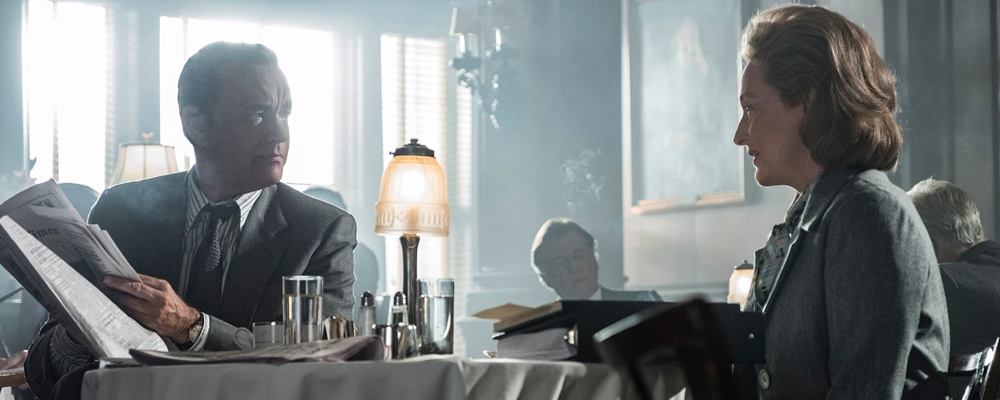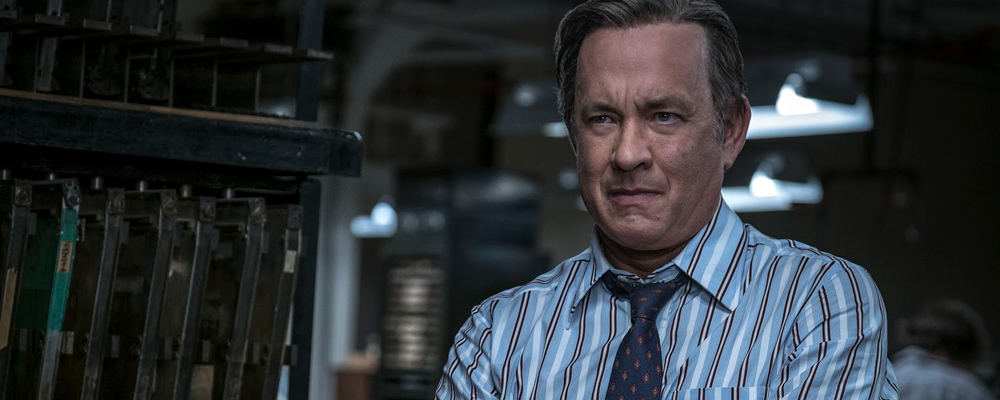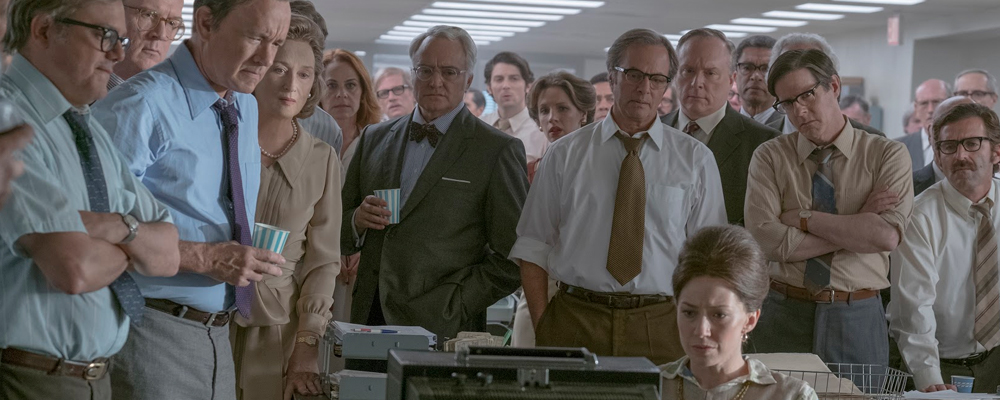Steven Spielberg’s ‘The Post’ Is a Compelling Drama That Spotlights the Power of Journalism
Alci Rengifo
“The Post“ is an example of Steven Spielberg as a filmmaker of conscience. It is an exhilarating, fascinating film that carries a very blunt and urgent message. By now Spielberg has perfected the craft of tugging at our heart strings with the stirring music of John Williams, but he’s damn good at it, and we should value filmmakers of his stature who are willing to use their resources to make films about politics and not special effects. Spielberg takes the famous Pentagon Papers leak by Daniel Ellsberg and crafts a movie that makes journalism exciting, while exploring its relationships to power. It raises the important question of how close should the people who run the media be to the people who run the country. Like the best films of this genre, we’re never buried under confusing information. Instead we’re carried along by the energy, the writing and the great acting.
The year is 1971, Richard Nixon is president and the Vietnam War continues to fuel protests in the streets. Elite power player Katharine Graham (Meryl Streep), publisher of the Washington Post, is preparing to take the company public amid financial strains. Her hard-edged editor Ben Bradlee (Tom Hanks) is struggling as the New York Times keeps grabbing all the big scoops while the Post lags with the reputation of being a mere local paper. It all changes when the Times publishes classified documents from a secret source chronicling the entire, sordid history of U.S. involvement in Vietnam, including the fact that officials have been aware all along the war is a futile effort. When the Nixon White House tries to silence the Times via the courts, Bradlee immediately gets his staff moving to find the secret source and all the documents. Of course the Post won’t just get a good story, but find itself clashing head on with the powers that be.
Steven Spielberg remains the world’s most well-known filmmaker, readily associated with expensive spectacles (a futuristic saga, “Ready Player One,” opens next year). But “The Post” is the Spielberg of master craftsmanship using pure narrative. He captures the adrenaline of the newspaper world, rushing his camera through desks alive with clicking typewriters. With his regular cinematographer, Janusz Kaminski, he frames the tension of power plays and conversations. Notice one scene where Graham meets with Wall Street suits discussing the newspaper’s decision to go public. Spielberg and Kaminski keep the camera moving with fluid tension, emphasizing moments of sexist jargon and brutal, capitalist commentary. The style is almost a throwback to the gritty but visually alive style of political filmmakers like Costa-Gavras. Like Gavras, Spielberg knows how to take a current event, or decades-old history, and make it feel fresh and urgent as cinema. There are secret meetings in underground lots, hotel rooms and lavish mansions, wars are raging and Nixon tries to silence the newspapers through the courts, but what makes this so fascinating and powerful is the knowledge that it isn’t fiction. There is a sense that Spielberg cares a lot for this story, because he believes in the lessons we can take from it.
“The Post” works as a thriller because the screenplay by Liz Hannah and Josh Singer crackles with the tension of the hunt for the Pentagon Papers while the protagonists deal with serious moral dilemmas. Tom Hanks plays Bradlee as a tough, thick-skinned editor. When a young intern asks if a task he has been assigned is legal, Bradlee simply replies, “what is it that you think we do around here, kid?” But he and Graham have to face up to how the papers reveal years of deadly lies about Vietnam crafted by some of their old friends, including Secretary of Defense Robert McNamara (Bruce Greenwood), who tries to justify his actions to Graham with shallow Cold War rhetoric. A brilliant touch is a recurring long shot of the White House, where we can see Nixon through a window, speaking on the phone. The dialogue is taken straight from the Watergate tapes, and we can hear Nixon and Henry Kissinger themselves plotting to silence the press over the leaked papers. There are scenes where characters nearly speak to the camera, commenting on the need for a free press in a free society, with barely-veiled allusions to the present.
Spielberg rarely gets credit for just how independent-minded his dramas can be. This is his best film since 2005’s “Munich,” which was a risky attempt at exploring the Middle East conflict through the story of a Mossad hit team avenging the 1972 Munich Olympics massacre. In “The Post” there are no heroes via political parties. Bradlee and Graham are portrayed as insiders who cheerfully hung out with the Kennedys and now face the fact that JFK initiated the venture into Vietnam and hushed the facts. Democrats and Republicans, they all lied about the war to keep it going. “Politicians and the press trusted each other, so they could go to the same dinner parties, and drink cocktails, and tell jokes while there was a war raging,” Bradlee tells Graham. Streep brings a great pathos to Graham, playing a refined personality who is an equal match to any of the ego-driven male power brokers she duels with, but who now deals with the inner torment of seeing the naked, corrupt face of much of the world she is a part of.
This is also a great movie when it comes to fascinating details. Spielberg wonderfully captures the hard labor of tracking down sources, getting people to talk and rummaging through mountains of information to chisel a story. We see the fine details of how a newspaper is printed, and anyone who has ever worked in a newsroom will smile at the scenes where Bradlee and his staff sit on floors strewn with documents, trying to make sense of it all with a deadline looming. There is a nice noir element too in the scenes where whistleblower Daniel Ellsberg (Matthew Rhys) sneaks the documents out of government offices, carefully making Xerox copies in the pre-internet age. When reporter Ben Bagdikian (Bob Odenkirk) meets with Ellsberg it plays like a good detective story, especially because the stakes were so high in real life.
“The Post” is a superb entertainment, but it is also one of the year’s most important films. It celebrates the hard work and importance of journalism, the need to understand our recent history, while keeping us gripped with skillful filmmaking. Go see it because it is so well-made, but you will get a lot more from truly paying attention.
“The Post” opens in select theaters Dec. 22, Jan. 12 nationwide.



